Education (36)
- Cognitive Science (3)
- Early Childhood Education (1)
- Education Business (1)
- Education Research (5)
- Education Technology (3)
- Educational Leadership (2)
- Educational Psychology (1)
- General Education (2)
- Instruction (2)
- Special Education (1)
- Teaching (11)
- Back to main category
- United Kingdom (5)
- Australia (0)
- Bachelor (0)
- Certificate (0)
- Diploma (0)
- Associate of Applied Science (0)
- Associate Degree (0)
- Graduate Certificate (0)
- Associate of Arts (0)
- Advanced Diploma (0)
- Summer Course (0)
- Postgraduate Diploma (0)
- Foundation Year (0)
- Graduate Diploma (0)
- Postgraduate Certificate (0)
- A-level (0)
- Preparatory Program (0)
- Doctor of Education (0)
- Advanced Certificate (0)
- Juris Doctor (0)
- Undergraduate Pathway (0)
- Undergraduate Certificate (0)
- Graduate Pathway (0)
- 2 years (0)
- 3 years (10)
- 4+ years (16)
- Full time (30)
- Part time (7)
- English (31)
- Spanish (4)
- Galician (3)
- Portuguese (2)
- Italian (1)
- On-Campus (34)
- Distance Learning (0)
- Blended (10)

36 PhD Degrees in Education in Europe for 2024/2025
- Cognitive Science
- Early Childhood Education
- Education Business
- Education Research
- Education Technology
- Educational Leadership
- Educational Psychology
- General Education
- Instruction
- Mathematics
- Mental Healthcare
- Neuroscience Studies
- Social Science
- Special Education
- Sports Science

Central European University (CEU)
Doctor of Philosophy in Cognitive Science
- Vienna, Austria
Doctor of Philosophy in Cognitive Science The Department of Cognitive Science offers a PhD program in Cognitive Science. This research-based, interdisciplinary program offers specialization in the fields of social cognition, cognitive development, and formal and biological models of perception and learning. Students may take courses in cognitive psychology, philosophy of mind, cognitive anthropology, visual perception and computational modelling.

Eszterházy Károly Catholic University
Doctoral School of Education
- Eger, Hungary
8 semesters
The Doctoral School of Educational Sciences focuses on educational research where features of schools, human aspects, and professional methodology meet with contemporary and historical art and educational considerations.

Universidade Santiago de Compostela
Doctorate in Equity and Innovation in Education
- Santiago de Compostela, Spain
Spanish, Galician
The main objective of this doctoral program is research and innovation on the socio-educational programs, actions, resources and policies necessary to achieve equity in education.

Universidade de Aveiro
Doctorate in History of Sciences and Scientific Education
- Aveiro, Portugal
Portuguese, English
Doctorate in Multimedia in Education
The Doctoral Program in Multimedia in Education aims to:

Institute of Science and Technology Austria
ISTA PhD Program
- Klosterneuburg, Austria
The goal of the ISTA PhD program is to produce intellectually broad, curious, open-minded scientists who are able to approach problems from different angles and can collaborate with diverse types of scientists. To this end, our students complete an innovative interdisciplinary training program consisting of both research and taught elements, and receive close mentoring by world-class faculty from different disciplines.

Goldsmiths, University of London
MPhil/PhD Education
- London, United Kingdom
Full time, Part time
We are committed to developing our postgraduate students into competent educational researchers able to conduct rigorous research using a variety of methodological approaches. We welcome inquiries about possible research topics both theoretical and empirical.

Charles University Faculty of Physical Education and Sport
Ph.D. in Kinanthropology
- Prague, Czech Republic
Blended, On-Campus
The study program is implemented within the scientific field of Kinanthropology. Research in Kinanthropology deals with the complex effects of intentional and spontaneous physical activity on the development of human personality in the bio-psycho-social context and conditions of the environment of physical education and sport, physiotherapy, health physical education, including their effective management. Kinanthropology, therefore, represents an interdisciplinary field requiring variability of the approach to solving research problems, in which a systemic approach with an accent on methodology has long been emphasized.

Queen's University Belfast
PhD Education
- Belfast, United Kingdom
You’ll be part of a dynamic doctoral research environment and will study alongside students from over 25 different countries; we supervise students undertaking research in key educational areas including education in divided societies; an effective education; children’s rights in education; educational assessment and inclusion.
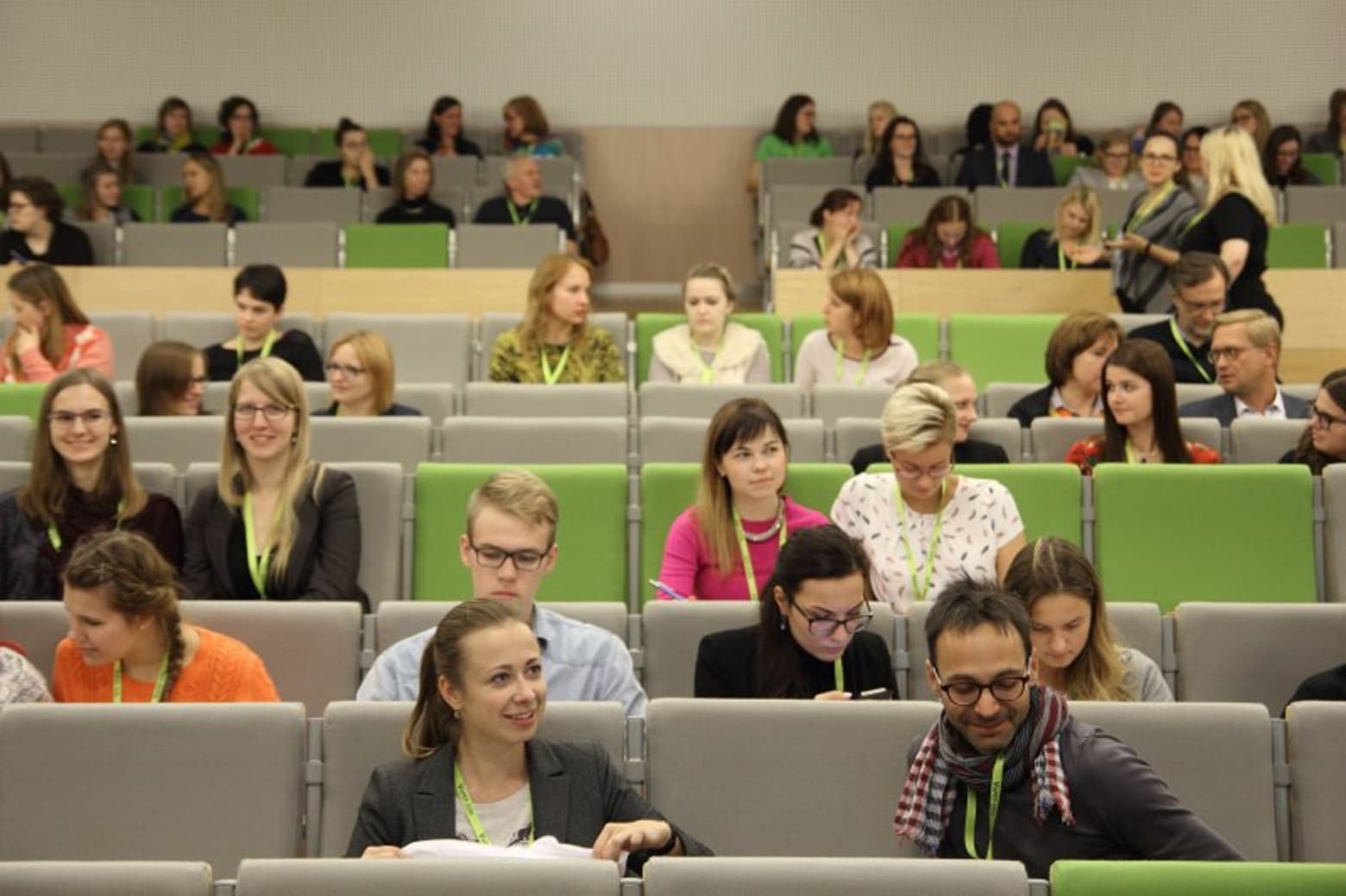
University of Latvia
PhD Education Sciences
- Riga, Latvia
The aim of the programme is to improve the doctoral student's research and academic competence in educational sciences to implement independent and innovative research activities for improvement and development of educational sciences theories, improve pedagogical practice at various levels of education (from pre-school to adult education) in Latvia and internationally, independently develop and publicly defend doctoral research containing original scientific research results and providing new knowledge in educational sciences.

IMT School for Advanced Studies Lucca - Scuola IMT Alti Studi Lucca
PhD in Cognitive, Computational and Social Neurosciences (CCSN)
- Lucca, Italy
CCSN is an international Ph.D. program hosted by the IMT School, one of the seven Schools of Excellence in Italy, and one of the highest-rated graduate schools in Europe, according to the most recent U-Multirank survey. The IMT School provides rigorous training and close supervision in a variety of disciplines in the social, cultural, cognitive, and natural sciences, welcoming multidisciplinary and interdisciplinary approaches at their boundaries.

Charles University Faculty of Education
PhD in Didactics of Art Education
The Art Education didactics Ph.D. study program supports areas of fine arts and its theory connected with the social science of education and didactics in a comprehensive realm of inquiry-based and international scientific approach. The Ph.D. program should strengthen the knowledge of art education and art reflection in the specialization of Art education and Creative arts majors thus being focused on the Art class didactics. The research area of the program then the main focus is to implement the model of reflective art which is targeted towards creative and inquiry-based art production which consequently leads towards the creation of methodologies and frameworks for didactic and pedagogical transformations in the fine and creative arts. Program without specialization.
PhD in Didactics of Chemistry
The goal of the doctoral study program Didactics of Chemistry is to prepare specialists to improve the quality of chemical education in the Czech Republic in accordance with current social needs and in accordance with the educational programs of advanced European countries based on scientific research results. The doctoral program is focused on the preparation of specialists in the field of chemical education theory in accordance with current knowledge of chemistry, pedagogy, psychology, sociology, informatics, and other disciplines. It is a program without specialization. Program without specialization.

Kaunas University of Technology
PhD in Education
- Kaunas, Lithuania
Joint doctoral studies with the Lithuanian Sports University, Šiauliai University (from 2021 – Vilnius University Šiauliai Academy). Coordinating institution: Lithuanian Sports University.

Newcastle University Postgraduate programs
- Newcastle upon Tyne, United Kingdom
We have expert supervision available in a wide variety of education subjects. Our research areas range from early-year policy to internationalisation in higher education. Our supervisors' current research interests, projects and publications are available from the School of Education, Communication and Language Sciences' staff profiles. Most of our staff have professional experience in teaching, speech and language therapy or English language teaching before entering academia.
Popular degree type
Popular study format
Popular education type
Popular locations
PhD Degrees in Education
Those who pursue education as a career will undergo courses that are designed to train future educators. Fortunately, there is a wide variety of courses designed for students who wish to supplement any teaching credentials. These courses are offered at various institutions across the globe.
In all, there are over 4000 Higher Education Institutions in Europe offering a wide range of courses at Bachelor, Masters and Doctorate level. With more and more of these organizations offering English as the language of education for at least some of their degree programs, universities in Europe are now of higher quality than ever before. Universities in Europe offer a friendly welcome to foreign students and to give a course of knowledge that meets their profession needs in today’s global demand.
Requirements for the PhD program often involve the student having already obtained a Master’s degree. Additionally, a thesis or dissertation primarily consisting of original academic research must be submitted. In some countries, this work may even need to be defended in front of a panel.
Best Universities for Early Childhood Education in Europe
Updated: February 29, 2024
- Art & Design
- Computer Science
- Engineering
- Environmental Science
- Liberal Arts & Social Sciences
- Mathematics
Below is a list of best universities in Europe ranked based on their research performance in Early Childhood Education. A graph of 279K citations received by 15.7K academic papers made by 176 universities in Europe was used to calculate publications' ratings, which then were adjusted for release dates and added to final scores.
We don't distinguish between undergraduate and graduate programs nor do we adjust for current majors offered. You can find information about granted degrees on a university page but always double-check with the university website.
1. University of Gothenburg
For Early Childhood Education
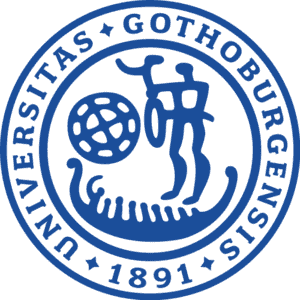
2. University of Manchester

3. University of London

4. University of Helsinki

5. University College London

6. University of Amsterdam

7. Utrecht University

8. University of Jyvaskyla

9. Erasmus University Rotterdam
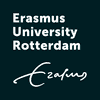
10. University of Groningen
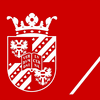
11. Maastricht University

12. Catholic University of Leuven

13. Dublin Institute of Technology
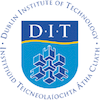
14. University of Oxford

15. University of Twente
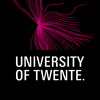
16. University of Freiburg

17. University of Birmingham

18. University of Warwick

19. University of Munich

20. Stockholm University

21. University of Edinburgh

22. University of Sheffield

23. University of Exeter
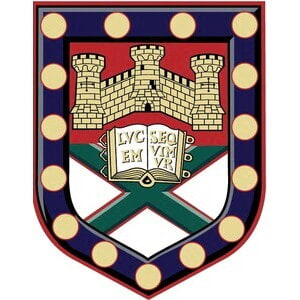
24. University of Leeds

25. Leiden University

26. Malardalen University

27. Umea University

28. University of Cambridge

29. University of Turku

30. University of Roehampton

31. Radboud University
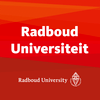
32. Ghent University

33. University of Stavanger

34. University College Dublin
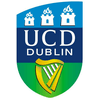
35. University of Strathclyde

36. University of Oslo

37. Linkoping University

38. University of Thessaly

39. Aristotle University of Thessaloniki

40. University of Southampton

41. University of East London

42. Aarhus University

43. University of Koblenz-Landau
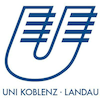
44. University of Tampere

45. Norwegian University of Science and Technology

46. University of Northampton

47. University of Padua

48. Lancaster University

49. University of Plymouth

50. University of York

51. University of Nottingham

52. National and Kapodistrian University of Athens

53. Canterbury Christ Church University

54. Autonomous University of Madrid

55. University of Oulu
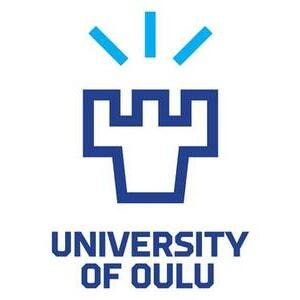
56. Goethe University of Frankfurt am Main

57. University of Cyprus

58. University of Antwerp
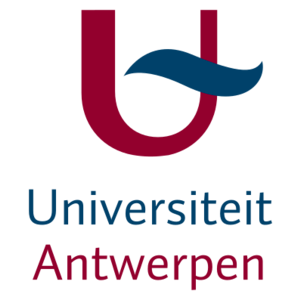
59. Lund University
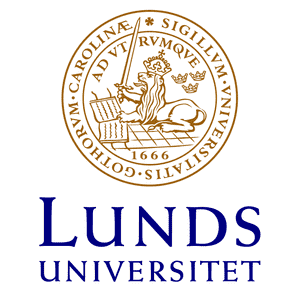
60. Cardiff University

61. Manchester Metropolitan University

62. University of Iceland

63. University of Eastern Finland
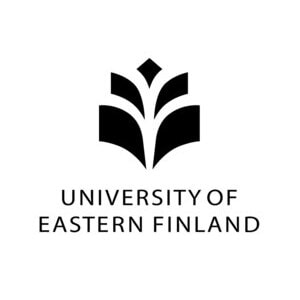
64. University of Bristol

65. University of Sussex

66. University of Tubingen

67. Wageningen University

68. Ruhr University Bochum

69. Trinity College Dublin, University of Dublin

70. University of Glasgow

71. University of Reading

72. University of Bath

73. University of Geneva

74. University of Fribourg

75. Ulster University

76. Karlstad University
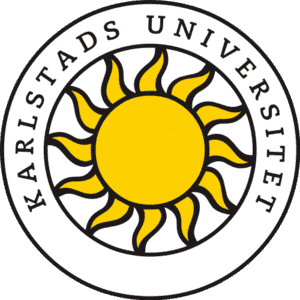
77. Free University of Berlin
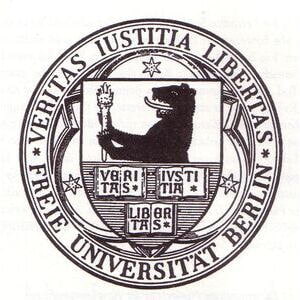
78. University of Granada
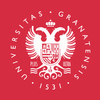
79. Uppsala University
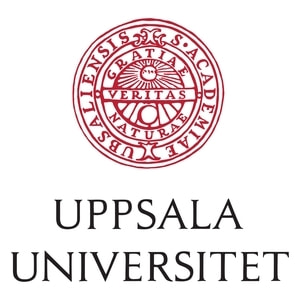
80. Free University Amsterdam

81. University of Seville
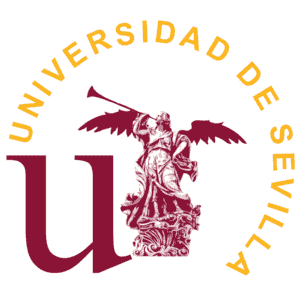
82. Liverpool John Moores University

83. Linnaeus University
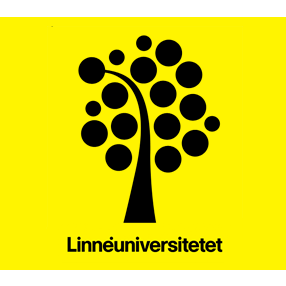
84. Queen's University Belfast

85. Newcastle University

86. London School of Economics and Political Science

87. University of Luxembourg

88. University of East Anglia

89. Jonkoping University

90. University of Crete

91. University of Copenhagen

92. King's College London

93. University of Portsmouth

94. University of Valencia

95. Orebro University

96. University of Porto

97. Complutense University of Madrid
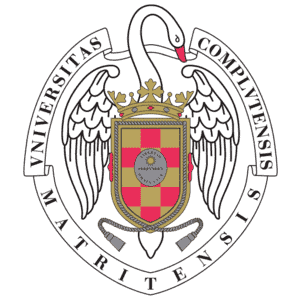
98. University of Lisbon

99. University of Bielefeld
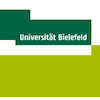
100. Durham University

Liberal Arts & Social Sciences subfields in Europe
Cookies on our website
We use some essential cookies to make this website work.
We'd like to set additional cookies to understand how you use our site so we can improve it for everyone. Also, we'd like to serve you some cookies set by other services to show you relevant content.
Childhood and Youth PhD
Key information.
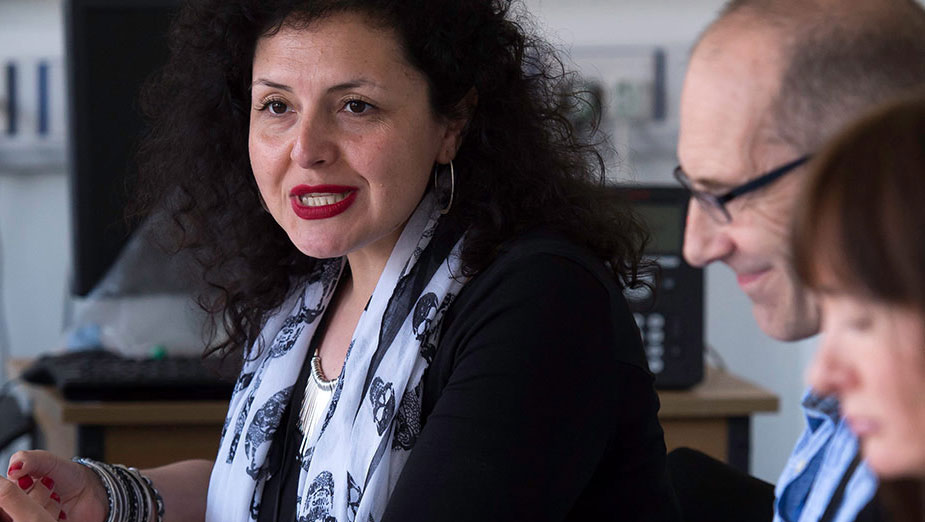
- 1st in the UK for our research impact in Education in REF 2021 (Times Higher Education)
- 2nd in the UK for Childhood and Youth Studies (Complete University Guide 2025)
- 100% of our research impact in Social Work and Social Policy was assessed to be world leading or internationally excellent (REF 2021)
The PhD in Childhood and Youth Studies gives you the opportunity to develop specialist knowledge in an area of interdisciplinary interest and to hone advanced research skills. As part of the internationally recognised Centre for Innovation and Research in Childhood and Youth (CIRCY) , you’ll work with faculty who are global in their outlook and experts in their fields.
Our doctoral researchers come from all over the world. For many, the PhD is an important step in advancing a professional career.
Areas of study
The PhD in Childhood and Youth Studies is linked to three Schools within the University: Education and Social Work; Law, Politics and Sociology; and Psychology. Depending on your specialist area of study, you will be based within one of those Schools, but you will also be part of an interdisciplinary community of doctoral researchers linked to the cross-University Centre for Innovation and Research in Childhood and Youth (CIRCY) .
Across varied disciplines and substantive topics, CIRCY researchers seek to understand – and make a difference to – the lives of children, young people and families, and to build understandings of childhood and youth in theory, research and practice.
We understand that deciding where and what to study is a very important decision. We’ll make all reasonable efforts to provide you with the courses, services and facilities described in this prospectus. However, if we need to make material changes, for example due to government or regulatory requirements, or unanticipated staff changes, we’ll let you know as soon as possible.
PhD open evening on campus
Monday 21 October, 5pm - 8.30pm

Entry requirements
- UK requirements
- International requirements
Please select your country from the list.
Philippines
Saudi arabia, south africa, south korea, switzerland, united arab emirates, my country is not listed.
If your country is not listed, you need to contact us and find out the qualification level you should have for this course. Contact us
English language requirements
Ielts (academic).
Advanced level (7.0 overall, including at least 6.5 in each component).
IELTS scores are valid for two years from the test date. You cannot combine scores from more than one sitting of the test. Your score must be valid when you begin your Sussex course. Find out more about IELTS
We accept IELTS One Skills Retake.
We do not accept IELTS Online.
Check full details of our English Language requirements and find out more about some of the alternative English language qualifications listed below
Alternative English language qualifications
Proficiency tests, cambridge advanced certificate in english (cae).
176 overall, including at least 169 in each skill.
We would normally expect the CAE test to have been taken within two years before the start of your course.
You cannot combine scores from more than one sitting of the test. Find out more about Cambridge English: Advanced
Cambridge Certificate of Proficiency in English (CPE)
We would normally expect the CPE test to have been taken within two years before the start of your course.
You cannot combine scores from more than one sitting of the test. Find out more about Cambridge English: Proficiency
LanguageCert Academic SELT
Advanced level (75 overall, including at least 70 in each component).
LanguageCert Academic SELT scores are valid for two years from the test date. Your score must be valid when you begin your Sussex course. Find out more about LanguageCert Academic SELT
We only accept LanguageCert when taken at SELT Test Centres.
We do not accept the online version. We also do not accept the non-SELT version.
LanguageCert International ESOL SELT
Advanced level (International ESOL SELT C1 with a minimum of 33 in each component)
LanguageCert International ESOL scores are valid for two years from the test date. Your score must be valid when you begin your Sussex course. Find out more about LanguageCert SELT
We only accept LanguageCert when taken at SELT Test Centres. We do not accept the online version.
Pearson PTE Academic
Advanced level (67 overall, including at least 62 in all four skills)
PTE (Academic) scores are valid for two years from the test date. You cannot combine scores from more than one sitting of the test. Your score must be valid when you begin your Sussex course. Find out more about Pearson (PTE Academic)
We do not accept the PTE Academic Online test.
TOEFL (iBT)
Advanced level 95 overall, including at least 22 in Listening, 23 in Reading, 23 in Speaking, 24 in Writing.
TOEFL (iBT) scores are valid for two years from the test date. You cannot combine scores from more than one sitting of the test. Your score must be valid when you begin your Sussex course. Find out more about TOEFL (iBT)
We do not accept TOEFL (iBT) Home Edition.
The TOEFL Institution Code for the University of Sussex is 9166.
English language qualifications
As/a-level (gce).
Grade C or above in English Language.
Hong Kong Advanced Level Examination (HKALE)/ AS or A Level: grade C or above in Use of English.
GCE O-level
Grade C or above in English.
Brunei/Cambridge GCE O-level in English: grades 1-6.
Singapore/Cambridge GCE O-level in English: grades 1-6.
GCSE or IGCSE
Grade C or above in English as a First Language (Grade 4 or above in GCSE from 2017).
Grade B or above in English as a Second Language.
Ghana Senior Secondary School Certificate
If awarded before 1993: grades 1-6 in English language.
If awarded between 1993 and 2005: grades A-D in English language
Hong Kong Diploma of Secondary Education (HKDSE)
Level 4, including at least 3 in each component in English Language.
Indian School Certificate (Standard XII)
The Indian School Certificate is accepted at the grades below when awarded by the following examination boards:
Central Board of Secondary Education (CBSE) – English Core only: 70%
Council for Indian School Certificate Examinations (CISCE) - English: 70%
International Baccalaureate Diploma (IB)
English A or English B at grade 5 or above.
Kenya Certificate of Secondary Education
Grades A - C in English language
Malaysian Certificate of Education (SPM) 1119/GCE O-level
If taken before the end of 2008: grades 1-6 in English Language.
If taken from 2009 onwards: grade C or above in English Language.
The qualification must be jointly awarded by the University of Cambridge Local Examinations Syndicate (UCLES).
West African Senior School Certificate
Grades A1-C6 (1-6) in English language when awarded by the West African Examinations Council (WAEC) or the National Examinations Council (NECO).
Country exceptions
Select to see the list of exempt english-speaking countries.
If you are a national of one of the countries below, or if you have recently completed a qualification equivalent to a UK Bachelors degree or higher in one of these countries, you will normally meet our English requirement. Note that qualifications obtained by distance learning or awarded by studying outside these countries cannot be accepted for English language purposes.
You will normally be expected to have completed the qualification within two years before starting your course at Sussex. If the qualification was obtained earlier than this, we would expect you to be able to demonstrate that you have maintained a good level of English, for example by living in an English-speaking country or working in an occupation that required you to use English regularly and to a high level.
Please note that this list is determined by the UK’s Home Office, not by the University of Sussex.
List of exempt countries:
- Antigua and Barbuda
- New Zealand
- St Kitts and Nevis
- St Vincent and the Grenadines
- The British Overseas Territories
- Trinidad and Tobago
- United Kingdom
** Canada: you must be a national of Canada; other nationals not on this list who have a degree from a Canadian institution will not normally be exempt from needing to provide evidence of English.
English language support
If you don’t meet the English language requirements for your degree, you may be able to take a pre-sessional course
- Visas and immigration
If your qualifications aren’t listed or you have a question about entry requirements, contact us
- How to apply
If you’d like to join us as a research student, there are two main routes:
- browse funded projects in this subject area
- browse our potential supervisors and propose your own research project.
Find out how to apply for a PhD at Sussex
Our supervisors
Explore our research interests and find potential supervisors.

Dr Liam Berriman
Senior Lecturer in Childhood and Youth S
View profile of Liam Berriman

Prof Janet Boddy
Professor of Child, Youth and Family Studies
View profile of Janet Boddy

Dr Rachel Burr
Senior Lecturer in Education
View profile of Rachel Burr

Prof Louise Gazeley
Professor of Educational and Social Disadvantage
View profile of Louise Gazeley

Dr Tamsin Hinton-Smith
Senior Lecturer In Higher Education
View profile of Tamsin Hinton-Smith
Prof Lisa Holmes
Professor in Applied Social Science
View profile of Lisa Holmes

Prof Kristine Langhoff
Professor of Social Work
View profile of Kristine Langhoff

Prof Michelle Lefevre
View profile of Michelle Lefevre

Dr Reima Ana Maglajlic
Reader in Social Work
View profile of Reima Ana Maglajlic

Prof Linda Morrice
Professor of Education and Migration
View profile of Linda Morrice

Dr May Nasrawy
Lecturer in Applied Social Science
View profile of May Nasrawy

Prof Gillian Ruch
View profile of Gillian Ruch
Dr Charlene Rumsby
Lecturer in Childhood and Youth
View profile of Charlene Rumsby

Prof Elaine Sharland
Professor of Social Work Research
View profile of Elaine Sharland

Prof Rachel Thomson
Professor of Childhood & Youth Studies
View profile of Rachel Thomson

Prof Charles Watters
Professor of Wellbeing and Social Care
View profile of Charles Watters

Dr Rebecca Webb
Senior Lecturer in Early Years and Primary Education
View profile of Rebecca Webb
Funding and fees
How can i fund my course, funded projects and scholarships.
Our aim is to ensure that every student who wants to study with us is able to despite financial barriers, so that we continue to attract talented and unique individuals. Don’t miss out on scholarships – check the specific application deadlines for funding opportunities. Note that funded projects aren’t available for all our PhDs.
Up to 10 scholarships for outstanding PhD students from China
Find out more
Commonwealth PhD Scholarships (for least developed countries and fragile states) for full-time doctoral study at a UK university.
A number of ESRC-funded standalone PhD and PhD with Masters scholarships across the social sciences.
A maintenance allowance for a Black home PGR student for 4 years starting at £19,237 in 2024-5 and UK PhD fees for 4 years
Applying for USA Federal Student Aid?
If any part of your funding, at any time, is through USA federal Direct Loan funds, you will be registered on a separate version of this degree which does not include the possibility of distance learning which is prohibited under USA federal regulations. Find out more about American Student Loans and Federal Student Aid .
Part-time work
We advertise around 2,500 part-time jobs a year so you can make money and gain work experience. We have a special scheme to employ students on campus, wherever possible.
Find out more about careers and employability
How much does it cost?
Fees for self-funding students.
Home students: Fees are not yet set for entry in the academic year 2025/26. Fees will become available once set by United Kingdom Research and Innovation.
Channel Islands and Isle of Man students: Fees are not yet set for entry in the academic year 2025/26. Fees will become available once set by United Kingdom Research and Innovation.
International students: £22,575 per year for full-time students
Home PhD student fees are set at the level recommended by United Kingdom Research and Innovation (UKRI) annually, rising in line with inflation. Overseas fees are subject to an annual increase - see details on our tuition fees page
Additional costs
Note about additional costs.
Please note that all costs are best estimates based on current market values. Activities may be subject to unavoidable change in response to Government advice. We’ll let you know at the earliest opportunity. We review estimates every year and they may vary with inflation. Find out how to budget for student life .
Empirical research costs
On top of your PhD fees and living costs, you may also need to cover some research and training costs, relevant to your research project. These costs will depend on your research topic and training needs, but may include: - travel (to archives, collections or scientific facilities) - a laptop - overseas fieldwork costs (travel and accommodation, and language training) - conference costs (travel, registration fees and accommodation) - laboratory consumables and workshop materials - participant costs - transcription or translation costs - open-access publication costs. If you have a scholarship from one of the UK Research Councils, your scholarship should cover these types of costs. You'll receive details of how to claim this additional funding. If you're self funded, or if your scholarship doesn’t cover these costs, check with the Research and Enterprise Co-ordinator in your School for details of School or Doctoral School funding that may be available.
- Living costs
Find out typical living costs for studying at Sussex
Find out about our terms and conditions
Explore our campus
Experience Sussex life in our virtual tour.
Start your virtual tour
PhD Information Sessions
Visit campus and chat to staff and students. Book your place
Online PhD Sessions
Join a live webchat. Book your place
International
Meet us in your country
Course enquiries
+44 (0)1273 876787
Send us a message
Admissions enquiries
If you haven’t applied yet:
+44 (0)1273 678464 eswpgradmin@sussex.ac.uk
Find out about the School of Education and Social Work
After you’ve applied:
+44 (0)1273 877773 [email protected]
Find out how to apply
Quick links
- Guide to PhD study
- PhD support
- Academic facilities
- Open Days and events
- Accommodation
- International students
- Student life
- Order a printed prospectus
What do you want to do next?
- Courses Browse our courses by subject area
- Sussex Life Find out about life at Sussex
- Visit Come to a PhD Open Evening
- Apply Find out how to apply
Browse our January courses and apply today
We're here to support you, every step of the way.
Advertise a vacancy on our platform today.
Read about our Research Excellence Framework submissions and results
Contact us for press and interview requests
In 2024 UEL celebrates a Year of Science
- All results
Professional Doctorate in Education EdD
This course is in clearing
Main slider
Thumbnail slider
The Professional Doctorate at the University of East London is a five-year part-time modular course specifically aimed at senior professionals working in all fields of education.
The course gives you the opportunity and the skills to conduct robust, innovative research that will improve the policy, practice, and the quality of education. Your doctorate will enhance your professional capability through critical analysis and the use of research evidence.
You will be studying at one of the most diverse and multicultural universities in London, with the chance to meet and work with students and academics from different national and international professional backgrounds, each with their own experience and expertise that they bring to the course.
Doctoral courses at the University of East London give you the chance to draw on this dynamic research culture as well as the research expertise of our academic staff, at least two of whom will serve on your supervisory team.
The course consists of two stages. In Stage One, you will study four compulsory modules over two years. This is then followed by Stage Two, where you complete your research thesis.
- Book for an open day
- Apply for accommodation
- Order a prospectus
- Make an enquiry Close
This course is in Clearing
Call our Clearing number today to apply through Clearing. Our call centre is open between 9am - 5pm, Monday to Friday
Our LLM course is a top choice
UEL’s LLM programme has been recognised as a top choice in the latest PTES survey, achieving 1st place rankings for satisfaction, teaching and more.
Course options
- September 2024
Doctor of Education
Entry requirements.
Normally a Full Masters Degree
We would normally expect you to have Grade C in GCSE English and Maths.
EdD Professional Doctorate in Education
Edd professional doctorate in education, home applicant, part time.
- Home Applicant
- 3220 Pound 3220
Fees, funding and additional costs
EU, EEA and Swiss Nationals starting a course from September 2021, will no longer be eligible for Home fees. However, such nationals benefitting from Settled Status or Citizens' Rights may become eligible for Home fees as and when the UK Government confirms any new fee regulations. Further information can be found at UKCISA .
Tuition fees are subject to annual change. Fees for future years will be published in due course.
Home students
Postgraduate loans scheme.
£10,280 to fund your Masters Programme under the Postgraduate Loans (PGL) scheme
Postgraduate Loans (PGL)
The Postgraduate Loan (PGL) provide non-means-tested loans of up to £10,906 to taught and research masters students. It will be paid to students as a contribution towards tuition fees, living costs and other course costs. Applications are made directly through Student Finance England
Eligibility
Whether you qualify depends on: • if you've studied a postgraduate course before • your course • your age • your nationality or residency status
Full eligibility can be found on the Government's Postgraduate Loan webpage .
Please take a look at the Postgraduate Loans for an overview of the new funding.
Postgraduate Scholarship
Apply for a 50 per cent discount on your tuition fees! You can get a 50 per cent discount on course fees through a UEL Postgraduate Scholarship. The scholarship is open to full-time and part-time UK and EU students of taught postgraduate courses. *Exclusions apply.
Find out more about full eligibility criteria and how to apply .
Terms and conditions apply.
Our scholarships and bursaries can help you
How we can help you
Did you know that with a postgraduate qualification, you can expect to earn more than someone who only holds an undergraduate degree?
If you want to build new skills, change career paths, or further your career prospects, a postgraduate degree can help you. Our range of scholarships and bursaries will make financing your education that much easier. Below is some of the funding available to support you in your studies:
- Alumni Discount - up to 15% fee waiver *exclusions apply. Please see the Alumni Discount page for information.
- Early Payment Discount - 5% fee waiver
- Asylum Seekers scholarship - 100% fee waiver
- Civic Engagement - £1,000
- Hardship Bursary - up to £2,000
- Sport Scholarships - Up to £6,000
How to pay your fees
There are a number of ways you can pay your fees to UEL
- Online payment facilities
- By telephone
- In person at our Docklands or Stratford campus
- Bank transfer
Full information on making payments can be found on our Finance page .
If you wish to discuss payments to the University, please contact our Income Team on 020 8223 2974 or you can email [email protected]
Ideas for funding your postgraduate study
Below are some ideas on how to fund your postgraduate study:
- Apply for a Postgraduate Loan
- Take advantage of UEL scholarships and bursaries
- Ask your employer to sponsor your study
- Study part-time so you can work at the same time (applicable to courses that have a part-time mode)
- Look at UK Research and Innovation funding options
The Student Money Advice and Rights Team (SMART) are here to help you navigate your finances while you're a student at the University of East London. We can give you advice, information and guidance on government and university funds so that you receive your full funding entitlement. Live chat: Click the live chat icon in the bottom left of the screen Phone: 020 8223 4444
International students
Living costs for international students.
As part of the Tier 4 student visa requirements, UK Visas and Immigration (UKVI) estimate that you will need £1,265* per month to cover your living costs. It includes expenses for accommodation, food and drink, travel within London, textbooks, entertainment, clothing, toiletries and laundry. Most Tier 4 students are required to show they have sufficient funds to cover the first nine months of the course before they start - a total of £11,385 - in addition to the tuition fees. You can find more information about the specific requirements of the Tier 4 student visa. The amount that you will spend can vary depending on your lifestyle. The UKCISA International Student Calculator can help you plan and manage your money.
* Please note the Immigration Rules are subject to change and this figure is likely to be increased by UKVI year on year. Please therefore check our ISA page for more information at the time of preparing your visa application.
How to pay your fees - international students
Deposits and paying by instalments International students are required to pay a deposit before being issued a Confirmation of Acceptance for Studies (CAS). Your remaining balance will be paid in five monthly instalments over your first term. The first of these instalments must be paid when completing your enrolment on arrival at UEL. Please follow the payment instructions on our Make a Payment page . After the required payment has been made, you will be asked to complete the online International Student Reply Form to confirm your acceptance of our offer and of our terms of admittance and fee policy.
Our International team at UEL are available for advice and guidance on studying in London, fees, scholarships and visa requirements. Email: [email protected]
Additional costs
Depending on the programme of study, there may be extra costs which are not covered by tuition fees, which students will need to consider when planning their studies.
Tuition fees cover the cost of your teaching, assessment and operating University facilities such as the library, IT equipment and other support services. Accommodation and living costs are not included in our fees.
Our libraries are a valuable resource with an extensive collection of books and journals as well as first-class facilities and IT equipment. You may prefer to, or be required to, buy your own copy of key textbooks.
Computer equipment
There are open-access networked computers available across the University, plus laptops available to loan. You may find it useful to have your own PC, laptop or tablet which you can use around campus and in halls of residences.
Free WiFi is available on each of our campuses.
In the majority of cases, coursework can be submitted online. There may be instances when you will be required to submit work in a printed format. Printing and photocopying costs are not included in your tuition fees.
Travel costs are not included but we do have a free intersite bus service which links the campuses and halls of residence.
For this course, you will be:
- involved in processes of making, as a means of exploration, experimentation, and understanding your practice, by using a diverse range of media and materials
- required to purchase your own copy of books, for required reading
- required to produce physical artefacts for assessment
- able to participate in optional study visits and/or field trips
However, over and above this you may incur extra costs associated with your studies, which you will need to plan for.
To help you budget, the information below indicates what activities and materials are not covered by your tuition fees:
- personal laptops and other personal devices
- personal copies of books
- optional study visits and field trips (and any associated visa costs)
- printing costs
- your own chosen materials and equipment
- costs of participating in external events, exhibitions, performances etc.
The costs vary every year and with every student, according to the intentions for the type of work they wish to do. Attainment at assessment is not dependent upon the costs of materials chosen.
Learn about applying
Important information about your application, uk full-time starting sept.
How to apply Apply directly to UEL by clicking on the apply button. For further information read our Guide to Applying . When to apply Places on many courses are limited and allocated on a first-come first-served basis. We advise you to apply as early as possible to give yourself the best chance of receiving an offer. Advice and guidance Our Information, Advice and Guidance team provide impartial advice on courses, entry requirements, pre-entry and access programmes in person and via the telephone. +44 (0)20 8223 4354 Already applied? You can track the progress of your application by contacting our Applicant Engagement team on +44 (0)20 8223 3333 (Monday - Friday, 9am - 5pm). Read our guide to applying for further information. Need help? Contact our Applicant Engagement team (Monday - Friday, 9am - 5pm) +44 (0)20 8223 3333
UK Part-time starting Sept
How to apply Apply directly to UEL by clicking on the apply button. For further information read our Guide to Applying . When to apply Places on many courses are limited and allocated on a first-come first-served basis. We advise you to apply as early as possible to give yourself the best chance of receiving an offer. Advice and guidance Our Information, Advice and Guidance team provide impartial advice on courses, entry requirements, pre-entry and access programmes in person and via the telephone. +44 (0)20 8223 4354 Already applied? You can track the progress of your application by contacting our Applicant Engagement team on +44 (0)20 8223 3333 (Monday - Friday, 9am - 5pm). Read our guide to applying for further information. Need help? Contact our applicant engagement team (Monday - Friday, 9am - 5pm) +44 (0)20 8223 3333
International Full-time starting Sept
Submitting your application please read and consider the entry and visa requirements for this course before you submit your application. for more information please visit our international student advice pages . .
How to Apply We accept direct applications for international students. The easiest way to apply is directly to UEL by clicking on the red apply button. Please be sure to watch our videos on the application process.
When to Apply Please ensure that you refer to the international admissions deadline . We advise you to apply as early as possible to give yourself the best chance of receiving an offer.
International students who reside overseas Please ensure that you have read and considered the entry requirements for this course before you submit your application. Our enquiries team can provide advice if you are unsure if you are qualified for entry or have any other questions. Please be sure to read about the Tier 4 visa requirements .
Advice and guidance Our Information, Advice and Guidance team provide impartial advice on courses, entry requirements, pre-entry and access programmes in person and via the telephone.
+44 (0)20 8223 4354 Need help? Contact our applicant engagement team (Monday - Friday, 9am - 5pm)
+44 (0)20 8223 3333
About our foundation years
Our Foundation Year courses are perfect for you if you...
- are returning to education after a long time, or you don't have the qualifications for direct entry into our degree programmes
- are thinking of re-training and would like an introduction to the area
- are an international student wanting an additional year to adapt to the UK academic system
- are still evaluating which degree pathway at UEL is the right one for you
Please note: Foundation years can only be studied full-time. However, you can transfer to part-time delivery once you have completed your foundation year. Please apply to the full-time option if you wish to study in this way.
What makes this course different

Overall research excellence in REF2021
92 per cent overall research world-leading, internationally excellent or internationally recognised

Research in Teacher Education journal
Education doctoral students have the opportunity to be published in our bi-annual periodical

95% student satisfaction (PRES 2021)
Overall student satisfaction has been over 90% across our postgraduate courses as reflected across two national postgraduate surveys (PRES 2021 & PTES 2021) showcasing the excellent academics and value in doctoral studies at UEL.
Course modules
Critically engaging with the literature core module.
The aim of the module is to provide you with the academic foundations underpinning knowledge and understanding of their fields of literature. Serving as the introductory module it will introduce you to what it means to write critically at doctoral level while acknowledging that this module is the start of the doctoral journey. You will be introduced to what is meant by 'educational research' and some associated introductory ontological and epistemological debates. However, the main focus will be for you to develop, as part of your induction, an understanding of the depth and breadth of literature related to your field of investigation, how to access this literature and how to engage with that literature rigorously, critically and succinctly.
Philosophy and practice of research Core Module
This module has the following aims:
- to introduce 'philosophy' to you and to compare it to other foundation disciplines in education studies: psychology and sociology
- to encounter a range of philosophical perspectives on education
- to address the foundational questions in philosophy
- to provide a context for considering your own attitudes as to the purpose of education
- to develop skills in critical reading and reflection.
Research methodology – perspectives on research Core Module
The module offers an overview of research methods in education locating them within existing debates surrounding the relationship between methods and methodology. The principal aim of this module is to raise awareness of epistemological, methodological, ethical and reflexive issues through the integration of theory, personal and professional experience and research. Key epistemological concepts will be revisited as a way to underpin the relationship and integration of theory and educational research. This module is designed to engage students with their own research topic and to understand the dilemmatic nature of the research process.
Integrating theory, research and ethical practice – Moving towards Registration Core Module
The aim of this final module is to equip you with the skills requisite for justifying your research topic within the context of university frameworks. This module will serve as preparation and training for the actual (real) registration, ethics and risk assessment that all researchers must embark on when carrying out research within a university. Once you have completed (and passed) these draft documents you will then work on them for their actual submission to the university's Research Degrees Subcommittee (SRDSC) - and the university's ethics committee (UREC). You will therefore produce these drafts as an assignment to submit by the deadline in June of your 2nd year on this professional doctorate. Once you get feedback from this marked assignment you can immediately start to turn this assignment into the REAL registration and ethics applications that you will then submit on 'PhD Manager' for the above committees to scrutinise. This means that this final module provides you with an invaluable opportunity to finalise, shape, and craft your original research proposal into its final variant - based on all the hard work you have put in on this first stage of your doctorate.
NOTE: Modules are subject to change. For those studying part time courses the modules may vary.
Download course specification
PDF, 88.4kb
Your research proposal
As part of the application process, you will be expected to submit a research proposal of between 1500-2000 (not including references).
To find out more about how to write your research proposal, see our research proposal guidance .
What we're researching
Major areas of research within the School of Childhood and Social Care include early childhood policy and practice, learning and teaching, language and diversity, work-based learning, teacher education, race and community, education equality issues, comparative education, professional education, social work knowledge and practice and Technology Enhanced Learning (TEL).
Your future career
This doctorate course at the University of East London is designed for professionals who are working within a range of contexts.
Research is a rapidly developing phenomenon, both nationally and internationally. This doctoral course is aimed at professionals and practitioners who would like to advance their own professional development in the areas of research, policy, curriculum development, and professional practice.
It also allows you to help improve institutional practice generally.
Studying for a Professional Doctorate at UEL's School of Childhood and Social Care will benefit senior members of staff working in a variety of institutions, including social work settings, schools, colleges, universities, examination organisations, and policy-related institutions.
Explore the different career options you can pursue with this degree and see the median salaries of the sector on our Career Coach portal .
How we support your career ambitions
We offer dedicated careers support, and further opportunities to thrive, such as volunteering and industry networking. Our courses are created in collaboration with employers and industry to ensure they accurately reflect the real-life practices of your future career and provide you with the essential skills needed. You can focus on building interpersonal skills through group work and benefit from our investment in the latest cutting-edge technologies and facilities.
Career Zone
Our dedicated and award-winning team provide you with careers and employability resources, including:
- Online jobs board for internships, placements, graduate opportunities, flexible part-time work.
- Mentoring programmes for insight with industry experts
- 1-2-1 career coaching services
- Careers workshops and employer events
- Learning pathways to gain new skills and industry insight
Mental Wealth programme
Our Professional Fitness and Mental Wealth programme which issues you with a Careers Passport to track the skills you’ve mastered. Some of these are externally validated by corporations like Amazon and Microsoft.
We are careers first
Our teaching methods and geographical location put us right up top
- Enterprise and entrepreneurship support
- We are ranked 6th for graduate start-ups
- Networking and visits to leading organisations
- Support in starting a new business, freelancing and self-employment
- London on our doorstep
What you'll learn
A Professional Doctorate represents the highest form of research apprenticeship. Throughout the course, you will be encouraged to challenge established ideas and concepts and to develop your personal and professional skills to the highest level.
You will study and acquire a substantial body of knowledge that is at the forefront of your academic discipline and area of professional practice.
As you progress on your doctoral journey you will gain a detailed understanding of the techniques used for research and advanced academic enquiry.
This will enable you to conceptualise, design and implement a project that will add new expertise and understanding to your discipline, placing you at the forefront of expertise, nationally and internationally.
How you'll learn
The School of Childhood and Social Care provides a dedicated study and research space for doctorate students at the purpose-built education building - a facility that is a unique hub for research and training as well as a focal point for the community.
We offer you extensive support in a wide range of research and study skills, as well as guidance and specialist support.
Research is structured around several research groups that cover a wide range of fields including language, diversity and multilingual education, leadership and management, and early childhood education.
Studying for a Professional Doctorate with us is a unique opportunity to join an international research and learning community through local, collaborative research groups and centres.
Your study will take a variety of forms, including face-to-face tutorials, seminars and group workshops, written assignments, and poster presentations. You will also be well-supported in your independent study and the writing of your thesis.
You will also have the chance to present at conferences at the University of East London and to have your work published in our well-respected research journal, Research in Teacher Education . You will also be encouraged to present at national and international conferences as and when this is deemed appropriate.
How you will be assessed
At Stage One of the Professional Doctorate, you will be assessed via assignments (written and visual) and presentations. These will be marked by two members of the course team and moderated by an external examiner.
Stage Two consists of a 50,000-word thesis. You will be examined orally (viva voce) on your thesis by an internal and external examiner.
You must successfully complete all assessed elements before we can award you your Professional Doctorate degree. Students with disabilities and/or particular learning needs should discuss assessments with the Course Leader to ensure they are able to fully engage with all the elements of the course.
Campus and facilities
Our campus and the surrounding area.
Our historic Stratford campus is located in one of the best-connected areas of London: close to Stratford's thriving town centre, the 2012 Olympic Park, and just 15 minutes from London's West End. Stratford’s facilities include a state-of-the-art library and learning centre, the majestic great hall and specialist laboratories and computing services. The School of Childhood and Social Care, and Centre for Clinical Education in Podiatry, Physiotherapy and Sports Science are housed in new buildings. There is also a campus restaurant and bookshop, and a Students' Union café-bar. Westfield Stratford City - Europe's largest indoor shopping mall - is just one of Stratford's attractions, alongside many other shops, cafés, bars and restaurants. There are two multiscreen cinemas, a theatre, an arts centre and much more.
Who teaches this course
This course is delivered by School of Childhood and Social Care
The teaching team includes qualified academics, practitioners and industry experts as guest speakers. Full details of the academics will be provided in the student handbook and module guides.

Gerry Czerniawski
Related courses
This course is taught in an interdisciplinary way.

MPhil PhD in Education
Research at the School of Childhood and Social Care is innovative and responsive to the diverse educational needs of communities.
TERMS AND CONDITIONS Modal

Terms of Admittance to the University of East London
The Terms of Admittance govern your contractual relationship with the University of East London ("UEL"). A contract between you, the Student, and us, UEL, is entered into once you accept an offer of a place on a programme at UEL and this contract is subject to consumer protection legislation. You are entitled to cancel this contract within 14 days of enrolment onto your programme.
1) Student enrolment
Enrolment at UEL is the process whereby you officially become a UEL student. The enrolment process requires you to:
- Ensure that we are holding the correct personal details for you
- Agree to abide by our regulations and policies
- Pay your tuition fees/confirm who is paying your tuition fees
You are expected to enrol by the first day of your academic year (click on "Discover") which will be notified to you in your enrolment instructions. Failure to enrol by the deadline contained in our Fees Policy (for most students by the end of the second week of teaching) may lead to the cancellation of student status and all rights attached to that status, including attendance and use of UEL's facilities. If you do not complete the formal process of enrolment but, by your actions, are deemed to be undertaking activities compatible with the status of an enrolled student, UEL will formally enrol you and charge the relevant tuition fee. Such activities would include attendance in classes, use of online learning materials, submission of work and frequent use of a student ID card to gain access to university buildings and facilities. Late enrolment charges may be applied if you do not complete your enrolment by the relevant deadline.
2) Tuition fees
Your tuition fee is determined by:
- the programme you are studying;
- if you are studying full or part-time;
- whether you are a UK/EU or International student; and when you started your studies with us.
We will tell you the tuition fee that you are due to pay when we send you an offer as well as confirm any additional costs that will be incurred, such as bench fees or exceptional overseas study trips. Unregulated tuition fees (where the UK government has not set a maximum fee to be charged) are generally charged annually and may increase each year you are on the programme. Any annual increase will be limited to a maximum of 5% of the previous year's fee. Regulated tuition fees (where the UK government has set a maximum fee to be charged) may also be subject to an annual increase. Any annual increase will be in line with the increase determined by the UK government. You will be notified of any increases in tuition fees at re-enrolment in the programme. Further information on tuition fees and payment options is contained in our Fees Policy .
3) Student ID Cards
To produce an ID card, we need a recent photograph of you that is not obscured and is a true likeness. We will either ask you to send us/upload a photograph in advance of enrolment or take one of you at the point of enrolment. The photograph will be held on our student records system for identification purposes by administrative, academic and security/reception staff. By accepting these Terms of Admittance you are confirming that you agree to your photograph being used in this way. If you object to your photograph being used in this way please contact the University Secretary via email at gov&[email protected] . You are required to provide proof of your identity at initial enrolment and prior to the issue of your UEL student ID card. This is usually a full and valid passport but instead of this you may bring two of the following:
- A (full or provisional) driving licence showing current address
- An international driving licence
- An original birth certificate (in English)
- A debit or credit card (one only)
- A benefit book or benefit award letter (dated within the last 3 months)
- An Armed Forces Identity card
- A police warrant card
You are required to carry and display your student ID card whilst on UEL premises and must keep it safe so that it is not misused by others.
4) Proof of qualifications
You are required to produce evidence of having satisfied the entry requirements for your programme. Such evidence must be in the form of the original certificates or certified notification of results from the examining body. All qualifications must be in English or supported by an official certified translation. If you fail to provide evidence of having satisfied the requirements for the programme you are liable to be withdrawn from the programme.
5) Non-academic entry requirements
You may need to demonstrate that you have met non-academic entry requirements prior to enrolment by providing additional information to UEL. For example, if you:-
- are under 18 years of age at the time of initial enrolment,
- are applying to a programme that requires health clearance for study as stated in the programme specification,
- have declared a relevant criminal conviction,
- will be studying a programme that involves contact with children and/or vulnerable adults or leads to membership in a professional body that deals with children and/or vulnerable adults.
You will not be permitted to enrol and any offer will be withdrawn if UEL deems that you are unsuitable for study following assessment of this additional information in line with published policies. These policies will be provided to you when the additional information is requested.
6) Criminal convictions
UEL has a responsibility to safeguard staff, students and the wider community. You are required to inform UEL of any relevant criminal convictions you have and provide further information relating to these as requested. This includes any relevant criminal convictions received whilst studying at UEL. UEL will assess all information received in line with published policies and may remove you from a programme if the conviction makes you unsuitable for study in UEL's opinion. Failure to declare a relevant criminal conviction or provide further information about you may result in expulsion from UEL.
7) Providing false information to UEL
If you are discovered to have falsified or misrepresented information presented to UEL at application, enrolment or during your studies, you may be expelled from UEL.
8) Continued enrolment and student status
You are expected to abide by all UEL policies and regulations, both those in force at the time of first and subsequent enrolment and as later revised and published from time to time. UEL reserves the right to make reasonable changes to its policies and regulations and any substantial amendments will be brought to your attention. You are also required to take personal responsibility for your studies; this includes undertaking all studies in support of your programme as prescribed by UEL. Key policies include: Manual of General Regulations This describes the general regulatory framework of UEL and gives information about how UEL confers its degrees, diplomas and certificates. It includes important information about academic performance requirements for continued study. Engagement Attendance Policy This outlines UEL's expectations of students in relation to attendance on and engagement with taught programmes. These students are expected to attend all scheduled classes and engage fully with learning materials and resources provided to them - failure to do so may result in withdrawal from module(s) and/or the programme. Code of Practice for Postgraduate Research Degrees The purpose of this code is to provide a framework for the successful organisation and implementation of good practice in all matters relating to postgraduate research degrees at UEL. It aims to ensure that all students are effectively supported and supervised so that the full scope and potential of their research is realised; that their thesis is submitted within regulatory periods and that they complete their programme with a suitable and sufficient portfolio of research and employment-related skills and competencies. Health and Safety Policy This describes the structures and processes by which UEL protects the health and safety of its staff, students and visitors. It confirms that students will receive sufficient information, instruction and induction in relation to health and safety. All students should take reasonable care of their health and safety. They must abide by UEL’s rules and regulations and cooperate with supervisors to enable them to fulfil their obligations. Students must not interfere intentionally, or recklessly misuse anything provided for health and safety. UEL has consulted with its students and staff and has adopted a No Smoking Policy to safeguard the health and well-being of its community. Students are required to comply with this policy which restricts smoking to designated shelters and prohibits the use of electronic cigarettes within any UEL building or near building entrances. For further information on our Healthy Campus initiatives and support please visit the Health and Safety pages . Student Disciplinary Regulations and Procedures (incorporating the student code of conduct) This code is more than a list of things that we should and should not do: it reminds us that we should always consider how our behaviour affects others. The code applies:
- to all students;
- at all sites throughout our estate, and;
- when we represent UEL on business beyond our campus, both in real (face-to-face) and virtual environments.
And outlines expectations of students:
- verbal and physical behaviour should always be polite and respectful;
- behaviour should not impair the engagement, learning or participation of others;
- anti-social behaviour by individuals and groups will not be tolerated.
9) Changes to scheduled programmes
UEL will take all reasonable steps to ensure that the programme of study that you have accepted will conform to the programme specification published on our website and will ensure that the necessary resources required to enable you to meet the required learning outcomes and pass the relevant assessments are available. In order to ensure that our programmes are current and relevant, they are subject to regular review. From time to time, to ensure the maintenance of academic standards and/or compliance with professional body requirements, it may be necessary to amend a module or make adjustments to programme content. Major changes to programmes that in the reasonable opinion of UEL, will have a significant impact on students will involve consultation with students already enrolled on the programme when the changes are proposed. Once any changes are confirmed, UEL will notify all students and applicants of the changes. When UEL reasonably considers that the change may only impact one or more cohorts on the relevant programme, UEL may decide to only consult with the relevant cohort. In the event that we discontinue a programme, we will normally permit existing students to complete the programme within the typical duration of study. In these circumstances, UEL will use reasonable endeavours to continue the programme for existing students without making major changes. If this is not possible, we will support students in changing to another UEL programme on which a place is available, and for which the student is suitably qualified, or assist with transfer to another HEI to complete the programme elsewhere.
10) Changes to these terms
We may change these terms from time to time where, in UEL's opinion, it will assist in the proper delivery of any programme of study or in order to:- (a) Comply with any changes in relevant laws and regulatory requirements; (b) Implement legal advice, national guidance or good practice; (c) Provide for new or improved delivery of any programme of study; (d) Reflect market practice; (e) In our opinion make them clearer or more favourable to you; (f) Rectify any error or mistake; or (g) Incorporate existing arrangements or practices. No variation or amendment to these Terms of Admittance may be made without our prior written agreement. In the event that we agree to transfer you to an alternative programme of study, the transfer will be considered to be a variation to the Terms of Admittance, which shall otherwise remain in full force and existence. If we revise the Terms of Admittance, we will publish the amended Terms of Admittance by such means as we consider reasonably appropriate. We will use reasonable endeavours to give you notice of any changes before they take effect.
11) Data Protection
UEL is committed to adhering to its obligations under the Data Protection Act 2018 and will act as a Data Controller when it processes your personal data. You can find our registration to the Data controller register on ico.org.uk . UEL processes your personal data to fulfil its contractual and legal obligations to students. Personal data that we process about you includes:
- Your contact details and other information submitted during the application and enrolment processes;
- Details of courses, modules, timetables and room bookings, assessment marks and examinations related to your study;
- Financial and personal information collected for the purposes of administering fees and charges, loans, grants, scholarships and hardship funds;
- Photographs, and video recordings for the purpose of recording lectures, student assessments and examinations and for the purposes of university promotion that is in our legitimate interest but still fair to you;
- Information about your engagement with the University such as attendance data and use of electronic services such as Moodle, Civitas and YourTutor;
- Contact details for next of kin to be used in an emergency;
- Details of those with looked-after status or those who have left the care system for the provision of support;
- Information related to the prevention and detection of crime and the safety and security of staff and students, including, but not limited to, CCTV recording and data relating to breaches of University regulations;
This is not an exhaustive list, for further information please refer to our fair processing notice pages on uel.ac.uk. In all of its data processing activities, UEL is committed to ensuring that the personal data it collects stores and uses will be processed in line with the data protection principles which can be summarised as:
- Being processed lawfully, fairly and in a transparent manner;
- Collected for specified, explicit and legitimate purposes;
- Adequate, relevant and limited to what is necessary;
- Accurate and, where necessary, kept up to date;
- Kept in a form which permits identification of data subjects for no longer than is necessary;
- Processed in a manner that ensures appropriate security of the personal information;
- Be accountable for, and be able to demonstrate compliance with, the six principles above.
Student Responsibilities You must ensure that:
- All personal data provided to UEL is accurate and up-to-date. You must ensure that changes of address etc. are notified to the Student Hub.
- Students who use UEL's computing facilities may process personal data as part of their studies. If the processing of personal data takes place, students must take responsibility for that processing activity to ensure that it is in line with the data protection principles above.
- Students who are undertaking research projects using personal data must ensure that:
- The research subject is informed of the nature of the research and is given a copy of UEL's Fair Processing Notice and this Data Protection Policy.
12) Legal basis for use of data
By agreeing to these Terms of Admittance and enrolling at UEL, you are agreeing to the terms and conditions of a contract for the use of your personal data relating to your enrolment, and if appropriate, registration and ongoing participation in a programme of study. Your personal or special category data will be collected, processed, published and used by UEL, its online learning and teaching services and/or its partners and agents in ways which support the effective management of UEL and your programme of study, to allow for the delivery of bursary schemes and to support improvements to student experience and progression, and are consistent with: The terms of the Data Protection Act 2018; Any notification submitted to the Information Commissioner in accordance with this legislation; and compliance with any other relevant legislation. You have fundamental rights associated with how organisations use your personal data. Further information on data protection and use of your personal data can be found in our Data Protection Policy and on uel.ac.uk.
13) Intellectual property
You are entitled to the intellectual property rights created during your time studying at UEL that would belong to you under the applicable law. There are some programmes where the assignment of certain types of intellectual property to UEL is appropriate. UEL will require the assignment to it of intellectual property rights relating to postgraduate research that is part of an ongoing research programme. Where the nature of the research programme means that some assignment of intellectual property rights to UEL is appropriate, we will take what steps that we can to ensure that your interests are protected. UEL will take reasonable endeavours to ensure:-
- the scope of the assignment is narrow, and is restricted to what is necessary, for example, to protect UEL’s legitimate interests in the intellectual property created as party to a research programme;
- the application of the assignment is clearly defined so that it is clear to you in which circumstances the assignment will apply;
- where the assignment of the intellectual property is appropriate in the circumstances, we will take all reasonable steps to ensure that the rights of the parties are evenly balanced (for example, your work being acknowledged in a publication and, where appropriate, subject to an appropriate revenue sharing scheme)
- where UEL claims ownership of intellectual property rights in relation to a taught programme of study, such treatment of those rights will be made clear in the published information relating to that programme.
14) How we communicate with you
UEL will communicate with you via a variety of channels, including postal letters, e-mail, SMS text messages and online notices. To enable this, we request that you provide us with your e-mail address, postal address, and contact telephone number when you first enrol. Throughout your studies, it is important that you keep your contact details up to date. You can view and edit this information by logging into our student portal, UEL Direct at https://uel.ac.uk/Direct . We will create a UEL e-mail account for you after you enrol. Your e-mail address will be your student number, prefixed with a ‘u’ and followed by ‘@uel.ac.uk’ – e.g.: [email protected]. UEL will use this e-mail address to communicate with you and it is important that you regularly check and manage this mailbox for important updates and information. You can access your email account, plus information about our services, news and events by logging into our Intranet, intranet.uel.ac.uk. At the login screen, enter your email address (as above) and password. Your default UEL password will be your date of birth, formulated as DD-MMM-YY, e.g. 31-jan-84. Your UEL email account and associated UEL IT accounts will be deleted not more than 6 months after you graduate or withdraw from your programme of study (if earlier).
15) University of East London Students' Union
The University of East London Students' Union (UELSU) represents students at UEL. By enrolling at UEL you are automatically granted membership of both UELSU and the National Union of Students (NUS). If you wish to opt out from this membership, please inform UELSU in writing at either [email protected] or by writing to Chief Executive, UELSU, University of East London, Docklands Campus, 4-6 University Way, London E16 2RD. UELSU provides a range of services and support to students and can provide advice and representation on any matter affecting the contract between you and UEL. For further information on this support, please visit www.uelunion.org
16) Students studying at partner institutions
If you are undertaking a programme of study at a partner institution you will need to generally abide by the above terms and also those of the partner institution. Further information and support in understanding these terms is available from the Academic Partnership Office - [email protected] .
17) International students - additional responsibilities
All international students must also comply with UK Visa and Immigration requirements. All international students are required to hold a valid visa which permits study in the UK or hold a Tier 4 visa/have applied for a Tier 4 visa with a Confirmation of Acceptance for Studies issued by UEL. Students who are being sponsored under a Tier 4 student visa must also understand and comply with the responsibilities of their student visa and cooperate with UEL in fulfilling our Tier 4 duties .
18) Equality, Diversity and Inclusion
UEL is committed to working together to build a learning community founded on equality of opportunity – a learning community which celebrates the rich diversity of our student and staff populations and one in which discriminatory behaviour is challenged and not tolerated within our community. Within the spirit of respecting difference, our equality and diversity policies promise fair treatment and equality of opportunity for all regardless of gender, ethnicity, sexual orientation, age, disability or religion/belief (or lack of). In pursuing this aim, we want our community to value and to be at ease with its own diversity and to reflect the needs of the wider community within which we operate. For further information on this inclusive approach to education please visit our Student Policies page .
19) Complaints
We welcome feedback on our programmes and services and facilitate this in a variety of ways, including programme committees, module evaluation forms and surveys. However, if you are dissatisfied with a particular service or programme or the manner in which it has been delivered, you must let the person responsible for that service know as we will always try to resolve matters at the earliest opportunity via informal conciliation. If you are unsure who to approach, please e-mail The Hub who will be able to direct your concerns appropriately. If you remain dissatisfied with a service or programme, or the manner in which it is delivered, you should refer to our formal complaints procedure to have the matter formally addressed. In addition, once you have enrolled on your programme, you will also have access to the Advice and Information Service offered by UELSU. This access is not available to students studying at partner institutions.
20) Cancellation
If you wish to cancel this contract within 14 days of enrolment in your programme, you must do so in writing. Any fees that you have paid will be refunded – please see the Fees Policy for further information on obtaining a refund.
21) Further guidance
If any of the information in these Terms of Admittance or related policies is unclear or if you have any questions, please contact The Hub for guidance on +44 (0) 208 223 4444 .
22) Right to advice
This is a consumer contract and you are able to obtain independent advice in relation to its terms and conditions from UELSU as well as your local Citizens Advice Bureau.
23) General
Neither you nor UEL will be liable for failure to perform their obligations under these Terms of Admittance if such failure arises from unforeseeable events, circumstances or causes outside of that party's reasonable control. Examples of such events include, but are not limited to, war, terrorism, industrial disputes, natural disasters, fire and national emergencies. Only you and UEL are parties to these Terms of Admittance. No other person shall have any rights under the Contracts (Rights of Third Parties) Act 1999 to enforce any term of these Terms of Admittance. Failure or delay by you or UEL to exercise any right or remedy provided under this contract shall not constitute a waiver of that or any other right or remedy, nor shall it prevent or restrict the further exercise of that or any other right or remedy. No single or partial exercise of such right or remedy shall prevent or restrict the further exercise of that or any other right or remedy. These Terms of Admittance are governed by the law of England and Wales and you and UEL agree to submit to the exclusive jurisdiction of the courts of England and Wales.
Give feedback on this website
Help us make this site better by telling us what you think about this page.
Tell us about your experience

COMMENTS
Find the best fit for you - Compare 36 Doctors of Philosophy (PhD) Degrees in Education in Europe for 2024/2025
Below is the list of 100 best universities for Early Childhood Education in Europe ranked based on their research performance: a graph of 279K citations received by 15.7K academic papers made by these universities was used to calculate ratings and create the top.
Find the best PhD programmes in the field of Early Childhood Education from top universities worldwide. Check all 21 programmes.
FindAPhD. Search Funded PhD Projects, Programmes & Scholarships in early childhood. Search for PhD funding, scholarships & studentships in the UK, Europe and around the world.
PhD programmes in Education in Europe. Find the best PhD programmes in the field of Education from top universities in Europe. Check all 193 programmes.
We have 5 early childhood education PhD Projects, Programmes & Scholarships in the UK. More Details. What Drives Social Pedagogy? University of Worcester Research School. A PhD student can focus upon one of the following topics. Social pedagogy as a solution to the current education crisis.
The PhD in Childhood and Youth Studies gives you the opportunity to develop specialist knowledge in an area of interdisciplinary interest and to hone advanced research skills. As part of the internationally recognised Centre for Innovation and Research in Childhood and Youth (CIRCY), you’ll work with faculty who are global in their outlook ...
The Professional Doctorate at the University of East London is a five-year part-time modular course specifically aimed at senior professionals working in all fields of education. The course gives you the opportunity and the skills to conduct robust, innovative research that will improve the policy, practice, and the quality of education.
Find the best PhD programmes in the field of Education & Training from top universities in Europe. Check all 278 programmes.
Discover PhD degrees in Early Childhood Studies in Europe. Search courses today.